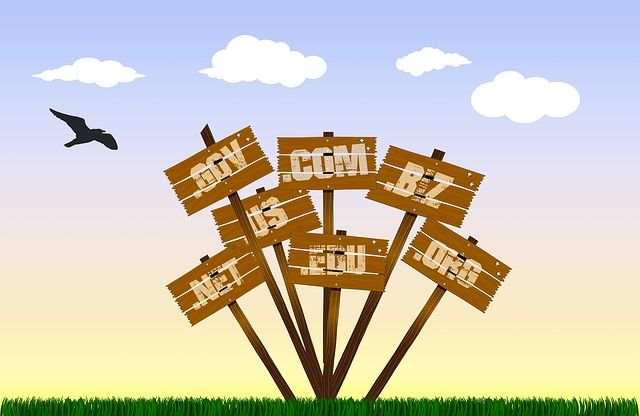How to Choose Your Business Name (10 Smart Tips)
Naming your Business is probably the most important step you'll make. So here are 10 Smart Tips on How to Choose Your Business Name by BrandSnag!
The proper name for your business can have a significant impact on your future success. Choose incorrectly; failing to connect with customers is the least of your concern. The wrong name could wind you (and your company) in hot water. You could also face immense legal hurdles, continuous business battles, and ongoing stressors. Alternatively, a well-thought business name can be powerful. It establishes your branding and marketing efforts and helps encourage the connection between you and your target audience.
A generic company name doesn't promote anything. A restrictive name prevents growth and suffocates and future expansion before it ever begins. The proper name allows growth and expansion of your business now and in the future. It builds the foundation of your platform and every piece after that. Your business name is connected to your website, social media accounts, business cards, and all marketing materials. Essentially, your business name is directly related to your company's future success – no pressure.
Find out if your Business Name is Available as a Domain or on Social Media

No one goes into business with the hopes of failing. Unfortunately, it's the reality thousands of people face every single day. Whether you're a freelancer, corporation, small business, or local store, having brand recognition is paramount to your success. You want to stand out in a sea of competition. Failing to do that doesn't necessarily make your business plan an instant failure, but it definitely makes it more challenging to push forward.
When you consider a business name for your company, you'll want to determine whether another business is already using the name. This consideration includes the domain name, social media accounts, and any online-related accounts. The last thing you want to establish is half a brand. It needs to be fluid, consistent, and predictable (all factors in building brand recognition). Using a name availability checker, like BrandSnag, will help you establish availability across all platforms simultaneously. You'll be able to find out whether your company name is available and what social media accounts are open for registration instantly.
Avoid Complicated Hard to Spell Names

One of the easiest ways to lose a customer is by confusing them with your name. You don't want to have potential leads, customers, or fans getting confused when trying to find your business online. This includes deliberate misspellings or including any puns or synonyms to the words in your name. Keep the name simple, clean, and easy to access for new or existing customers.
Try to avoid using words that have different meanings. Avoid using similar-sounding words, if possible. For example, the term "at" can be confused with the at symbol (often used on social media and emails). Avoid using numbers throughout your domain and business name. The business name Bikes4U may seem like a good idea until you realize virtually everyone will need to spell the domain, email, social accounts, and contact information to any potential customer in the future. After all, a customer will give up searching if you're going to make it difficult.
To determine whether your business name is difficult, call a few friends and ask them to write down the company name you've chosen, strictly from the phonetical pronunciation. Once they've finished writing down the URL, ask them to read it back to you. If your brand caters to younger or older generations, make sure the spelling of your company name is easy to explain over the phone for customer service agents. Word of mouth marketing is free. Maximize this opportunity by ensuring your customers can spell, say, and access your business information effortlessly.
Don't Limit Your Business Growth Because of Your Business Name

While it's essential to choose a business name that directly reflects your products, you'll want to avoid choosing a name that leaves you stuck down the road. Never limit your company name to a specific product or service, especially if you're hoping to expand down the road. Likewise, keep any specific city out of the business name (unless you never want to expand).
Companies will continue to grow and develop over time, even if they've started small initially. If you're going to sell your products outside your physical location, keep any geographical details out of the business name, if possible. Some consumers will assume that a business with a location in the title only services that area. As such, you may end up losing potential customers just by including a city, region, or country in your business name.
The only exception to this is an area-specific service. If you're confident that the company you're building will never expand outside of a specific geographical location, then you can cautiously include the city. Remember, the formal business name should reflect the company you want to be in in ten years, not the one you're just starting. A service industry with a location attached to it is going to build a local reputation.
It's also important to keep your business name free of specific products or items. Although you may be a shoe company initially, eventually, an expansion will happen. Business names should remain open and flexible to accommodate additional products down the road. While you might be starting with just a few products for your eCommerce platform, eventually, you may become a household name like Amazon.
Thoroughly Research Before Deciding Your Business Name

Once you've established the company name, it's time to start searching online. Any business or company account that pulls up on the search results for your potential name is considered a direct competitor. It also increases the potential of trademark infringement down the road. When researching companies online, always look at the online reviews as well. If you're choosing a business name that is already established in another city (or country), remember the direct influence they'll have over your reputation.
For example, a company called "Joe's Donuts" may seem like the perfect idea for your bakery. After researching, you discover that another company has the same business name. While it's legal to start your company (you're in another country), your business could potentially be drawn into any controversy or online issues for misconduct, criminal proceedings, or slander if the original has a problem down the road.
Understand what TLD will Best Suit your Domain Name

Although it's always preferable to secure the .com domain for your business name, it's becoming increasingly difficult for new business owners to find an available handle. Most consumers connect the .com suffix with a higher level of credibility, trust, and established business. If you happen to choose a company name that is already registered, you have three options.
First, you can contact the current domain holder and ask them to sell their domain. If they're actively using the domain name, this option is likely not going to work (after all, there's reputation and marketing to consider when selling a domain). Second, you can brainstorm another company name. Finally, you can look into using alternative suffixes for your website. These can include the country-specific ending (ccTLDs), .org, .co, or .net. It's important to consider the implication of having a ccTLD before registration. If you're hoping to expand globally, these suffixes may not be your best option.
Perform a Trademark Search

Before registering your business name, it's always a wise idea to perform an online search at USPTO.gov. The United States Patent and Trademark Office will help you determine whether your business name or domain qualifies for a trademark, which would protect your company from imitation or squatting. A trademark is a combination of words, sounds, letters, or designs that separates one company's products or services from others within the marketplace. The trademark protects your company by blocking duplication of your name without consent. The trademark can apply to specific products but can also include a company name or slogan.
Domain squatting is when an individual purchases a similar domain name and holds on to the URL in hopes of selling it to business owners at a higher price. Squatters may also develop a site very similar to your company's account in hopes of stealing potential visitors. Squatters will often affix an affiliate ad listing to the domain, often targeted at the same products you offer. Although domain squatting is challenging to prevent, having a trademark can help remove unauthorized websites, domains, and social media profiles imitating your company.
Don't Be Boring

There is nothing worse than a boring name, especially if you're trying to establish yourself as a trendy platform for younger crowds. Think of something unique and original when it comes to your name, but don't choose something too extreme for a company name either. You want future employees to feel confident when they name your company, not ashamed of telling people. Find a name that is simple, easy to say (and spell), and resonates with your target audience.
If you're not sure whether your name is too difficult, ask four or five different people to spell the business name you've chosen (without seeing it first). Should any of them come up with variations you didn't intend, the name will lose potential visitors. Ideally, you want a company name that you can say aloud and have someone understand the spelling.
Collect Feedback About Your Business Name

While you may be smitten with the new business name you've chosen, it's the general public that needs to respond well. Before committing to a name for your company, try brainstorming at least ten different options. Take these names to the public (whether that is family, friends, colleagues, or the streets of New York) for feedback. Ask everyone to choose their favorite name and record the results independently. Ask them to identify what products or services they associate with the business name.
Always have your target audience review the potential business names, too – their feedback will directly influence your company's success overall. If they don't like the name you've chosen, consider adjusting the name. Finally, it's important to research the name you've chosen and the meaning it holds in other languages. Some companies have failed to analyze alternate meanings to their products and have found themselves in a very embarrassing situation.
With the infamous "Siri" AI product, Apple forgot to check the Georgian translation of the word. It turns out Siri means penis in Georgian. Web browser "Bing" isn't very popular among Chinese demographics. It turns out bing means illness in Chinese. While these highly influential brands are likely to recover from these unfortunate mishaps, it's unlikely a small business would be able to survive the same mistake.
Sit with It

Before jumping to a domain registrar and making an impulsive decision on your company name, slow down for a few days and sit with the name. Spend a few days thinking about the business name and how it fits with the idea you have in your mind. Consider the plan for your company. What does that look like in the next six months? Where will your company be in the next five years? Would the business name still suit the company profile at that time?
Evaluate how you're going to influence your followers using the company name you've chosen. Understand the target audience and how they currently interact with businesses. If they're the adolescent crowd, does the name stand out against current interests? Ask yourself whether the name you've chosen has the potential to expand over time. A high-quality name should never be restricting or limiting on future potential.
For example, if you're looking at starting a shoe store online, JazzyShoes might sound like a great business name. Consider how expanding the company would look if you wanted to bring in hats, gloves, purses, or clothing. Suddenly, the name JazzyShoes no longer seems appropriate. Unfortunately, after building your business for a few years, your customers have grown to know your name. They trust the name. Changing your name could mean harming that market you've attracted. Alternatively, a business name "Jazzy" doesn't offer any indication of what products or services are being offered. This consideration is why it's crucial to build your business name in a way that allows you to grow as a company without seeming vague. If you've sat with the potential name for a week or so and are still smitten with it, it's a good indication you've committed to it.
Use a Business Name Generator

It doesn't matter if you've brainstormed fifty names or five hundred names; sometimes, we just can't think outside the box enough to stand out. Thankfully, business name generators like BrandSnag can help you brainstorm unique, original ideas available as domains and social media channels. After all, there's nothing more frustrating than finding the perfect business name and not being able to register the company online.
Consider using common keywords, phrases, or products associated with your industry when brainstorming. Write down any popular terms, along with any common industry jargon. You don't have to create mind-blowing business names; you simply want to have a list of as many terms as possible. These might include your first or last name, verbs that describe your company lifestyle, product connections, or other relevant words. Once you've established a list, generate as many names as possible using at least two words from your list.
For example, if you're starting a bicycle business, you might include CycleCity as a potential name. BobsBikes is an example of a first name and product-specific business name. Spend a few days brainstorming your keywords, and then use the automated service to help you pair up unique and catchy names. Once you've found a few names you like, spend a few days with each option before making your final decision.
Conclusion
Starting a new business is never easy. From the initial concept to launching, every step needs to be carefully considered. As a business owner, you'll need to determine where you're going to maintain your business, what countries you're going to service, the products you're going to promote, and the company's entire logistics. Getting the company on the right footing is also an important consideration. You wouldn't just name an infant the first thing you considered; you paired the name with middle names, last name, considered negative connections to the name (or things a child might be bullied for). Treat your business name with the same care and compassion.